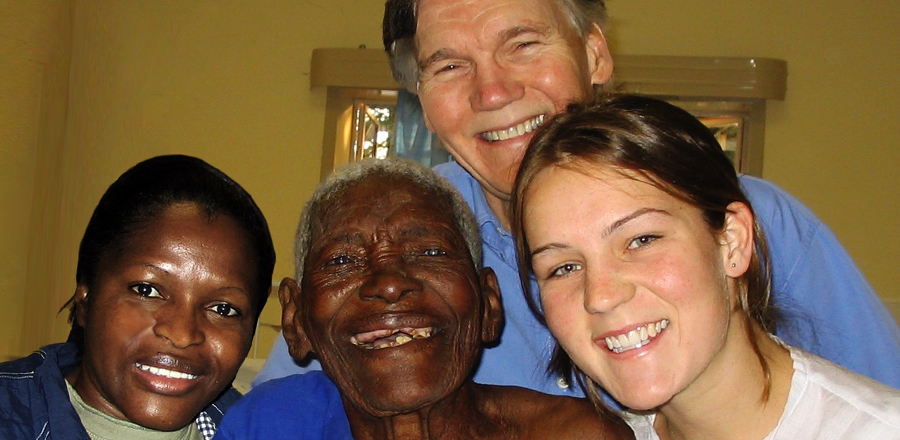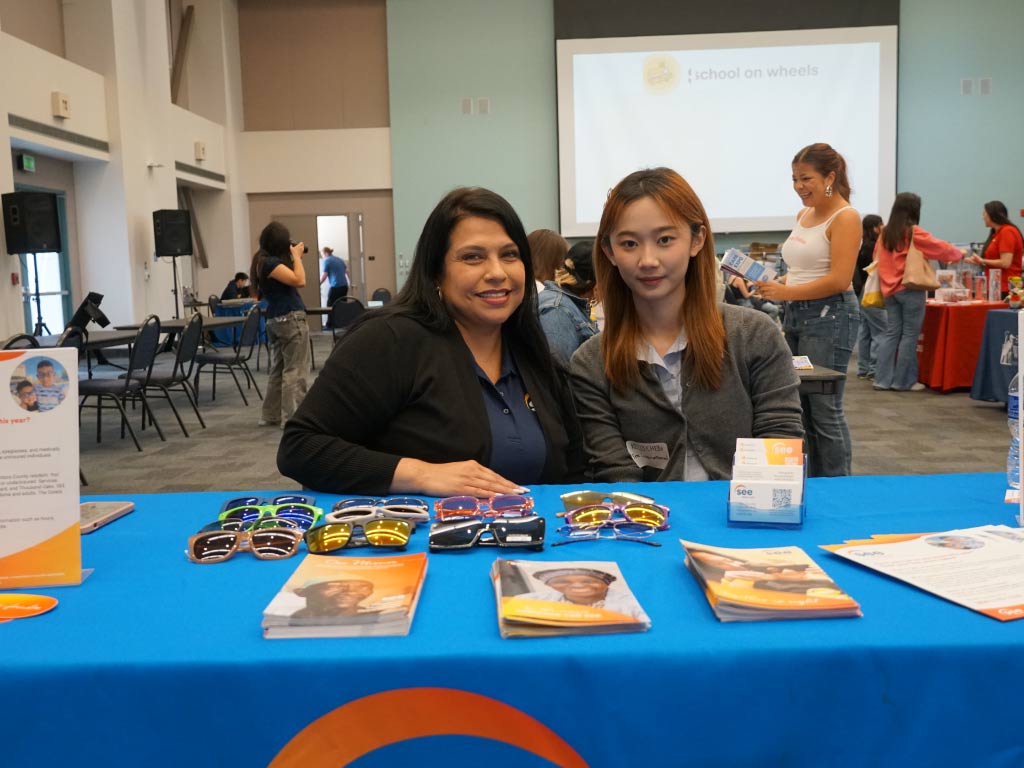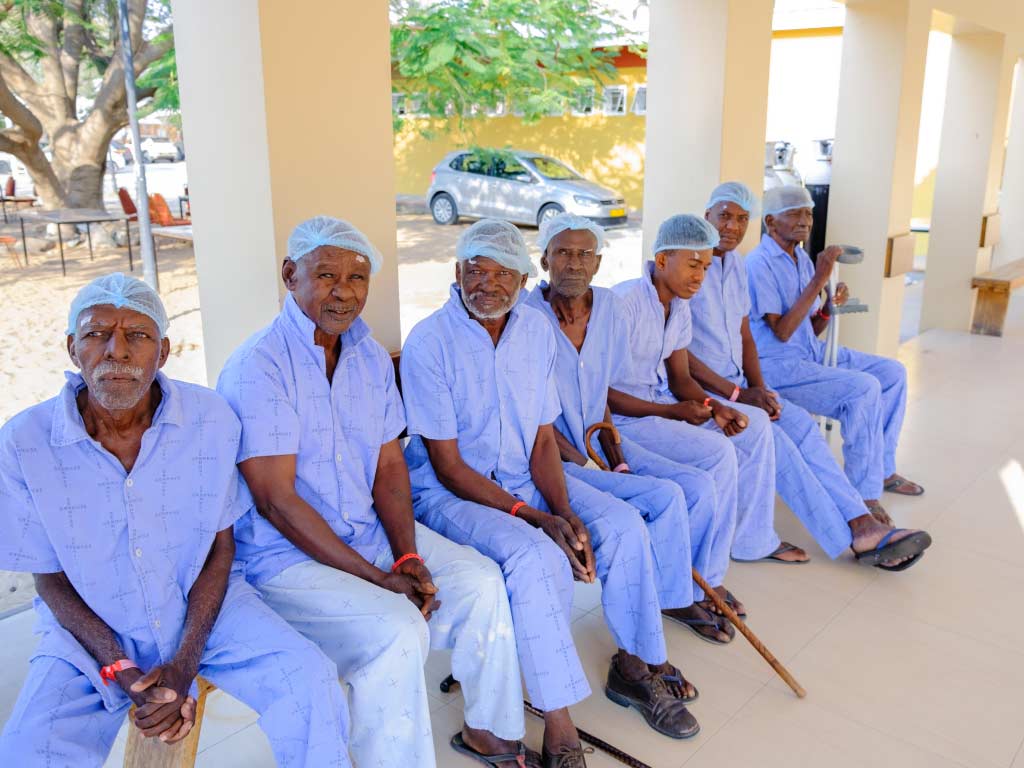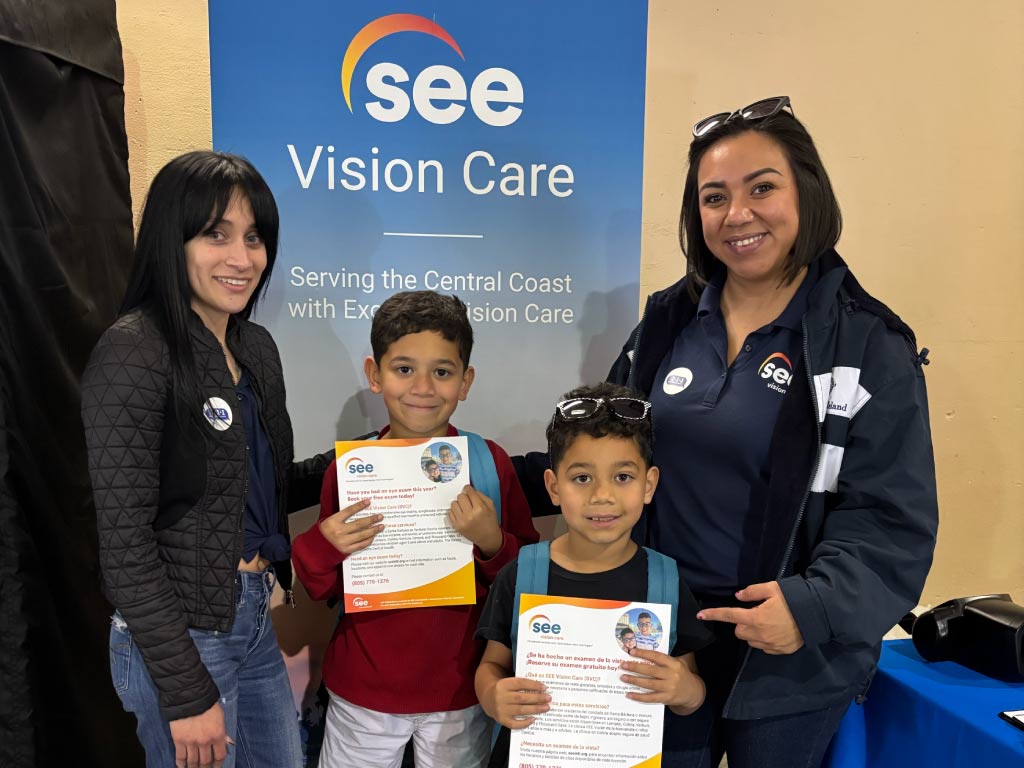Written by Randal Avolio, former SEE President / CEO
As I was digging through our digital archives over the past month, I discovered some buried treasure from SEE’s past. Way back in 2003 (long before I joined SEE!), the Colvard family had an inspiring experience during a SEE program. Dr. David Colvard, one of our dedicated traveling volunteers, brought his daughters, Caitlin and Megan, to assist at a clinic in Namibia. Caitlin wrote a genuinely stunning account of what she saw while there. The reason why I wanted to share it with you, is because it touches upon an important aspect of what we do at SEE. By giving the gift of sight to our patients, we don’t just give them back their ability to see – we help them regain their dignity, their identity, and their sense of self-worth.
Here is Caitlin’s story: (emphasis mine)
Fenni Amoomo awakened and opened her eyes to a world of shadowy darkness. Although she could see little else, she could tell light from darkness, and she knew it was morning. Carefully she felt her way to the opening of her tiny dirt-floored hut and called for her grandchildren, a boy and a girl, ages six and eight. Since the death of Fenni’s daughter and her son-in-law from AIDS, she and her tiny grandchildren were all alone. Fenni grieved for loss of her own children, but the challenges of keeping her grandchildren alive and safe left her little time to dwell on her sadness.
That morning, my sister, Megan, was working with the Namibian Red Cross, traveling from village to village in Southwest Africa, in an effort to help children orphaned by the AIDS epidemic. Their mission was to locate and provide assistance for abandoned children. As Megan approached one small, isolated hut, with the assistance of an interpreter, she called out, “Is anyone here?” From within she heard only a faint whisper, “I’m sorry, there is no one here…only a blind person.” Megan knelt down to the entrance of the doorway and began to speak with Fenni. Slowly Fenni began to tell the heartbreaking story of her family. Tears came to her eyes as she described the terrible helplessness and guilt she felt in being unable to care for her “little children”. Megan wondered silently if our father, a visiting volunteer eye surgeon with the Ministry of Health in Namibia, might be able to help Fenni. He was scheduled to leave the village early the following morning, and move on to another area. It was already late in the day, and there was no time to waste.
What I love about this is how clearly it shows what blindness does to a person’s sense of self. “There is no one here,” Fenni said of herself. As far as she was concerned, she was nobody without her sight. The only thing that gave her a sense of dignity was caring for her grandchildren. Now her blindness had robbed her of the ability to do even that. But where blindness can deprive someone of their purpose in life, restoring their sight can help bring back their sense of self-worth. Caitlin goes on:
Megan rushed back to the eye camp to see if our father could see “just one more patient.” He and his colleagues had performed 150 cases in three days. They were tired and were beginning to pack up their equipment, but Dad broke away and quickly evaluated Fenni. He determined that cataracts were the cause of her blindness, and the team eagerly accepted their last patient.
Very early the following morning my father and Megan made rounds at the hospital. When they arrived in Fenni’s room, she was not among the other patients. She was already dressed and perched on a small wooden bench outside her room. Her smile told all. She reached out and brought Megan close to her. Touching Megan’s face, she looked into her eyes, and spoke. “My daughter, God’s grace helped you to find me and God’s pity has made me see again. Thank you for helping me.” As tears began to flow down Fenni’s cheeks, Megan reached to wipe away tears of her own. Fenni and Megan were different in a thousand ways, but these differences seemed to vanish as they sat silently next to each other. Their lives will be forever connected. Fenni will now be able to care for her loved ones, simply because Megan came to her doorway, and, thanks to “only a blind person,” Megan will now have hope and confidence that each of us can make a small difference in a world too often filled with dark shadows.
A simple, inexpensive, thirty-minute surgery changed Fenni’s outlook on life dramatically. With her sight restored, she could care for her grandchildren again. She could participate in her community, and lead an independent, dignified life again. In the fifteen years since then, the Colvard sisters have not let the lessons they learned in Namibia go to waste. Caitlin is now a pediatrician, and Megan is regional director for the San Jose chapter of People Assisting the Homeless (PATH). Both have gone on to serve humanity, and make a positive impact in their respective communities. They have dedicated their lives to restoring the dignity of their fellow human beings.
For our part at SEE, we continue to commit ourselves to our mission of transforming lives through restoring people’s vision. Few things in life can give someone back their dignity, their identity, and their independence, more than treating their blindness. I hope you’ll join us on this mission going forward!






